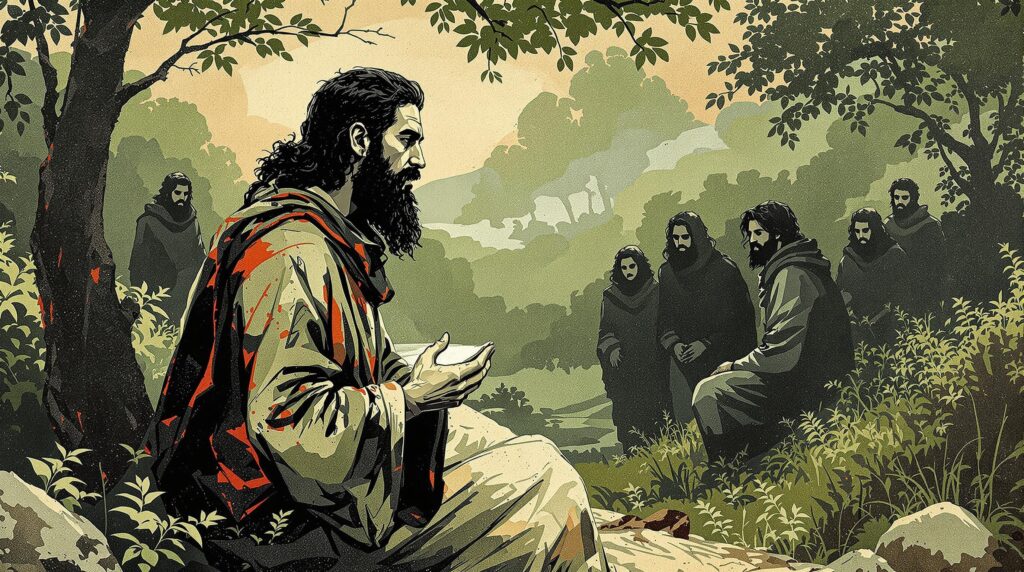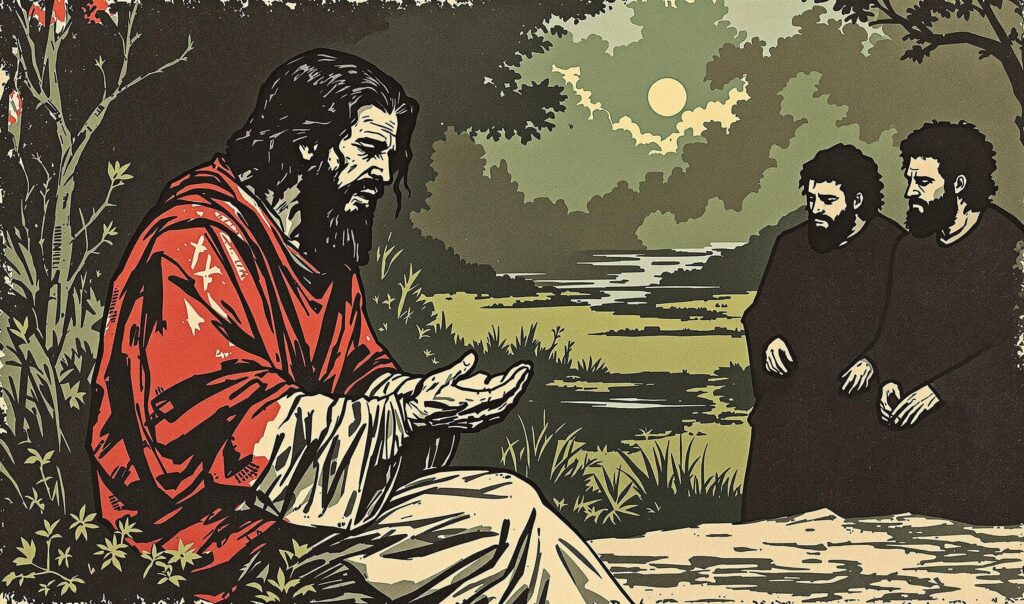In this chapter, Zarathustra confronts an inner crisis that compels him to return to solitude. The narrative unfolds as Zarathustra addresses his friends, explaining his disturbed state and his need to depart from them once more.

Yesterday at evening my stillest hour spoke to me: that is the name of my terrible mistress. And thus it happened – for everything must I tell you, that your heart may not harden against the suddenly departing one!
Zarathustra reveals that he is being urged by an imperative force to retreat into isolation. This force is personified as his “most silent hour”. He refers to this presence as his “angry mistress”. This entity communicates with him silently, engaging in a profound dialogue without spoken words.
The silent voice challenges Zarathustra, asserting that he knows a significant truth or message but refuses to speak it. Zarathustra reacts with fear and reluctance, expressing that he is unwilling to articulate this knowledge. He admits feeling unworthy and lacking the strength to bear the weight of this revelation. The voice counters his resistance, insisting that it is not about his personal worth but about the necessity of conveying the message, even if it leads to his own undoing.
The dialogue delves into themes of humility and pride. The silent voice tells Zarathustra that he is not humble enough and that true humility requires enduring great burdens. Zarathustra reflects on his own humility, stating that he dwells at the foot of his heights, knowing his valleys well but unaware of how high his peaks reach. The voice suggests that one who can move mountains can also transform valleys, implying that Zarathustra has the power to effect significant change.
Zarathustra expresses frustration that his words have not reached humanity, feeling that despite approaching people, he has not connected with them. The voice responds by emphasizing that the influence of one’s words may be unseen, likening it to dew falling on grass in the quietest night. It dismisses the mockery Zarathustra has faced from others, highlighting that his true role is not to obey but to command.
The silent voice underscores the importance of command over action, asserting that commanding great deeds is more challenging than performing them. It criticizes Zarathustra for possessing power yet refusing to wield it. Zarathustra confesses that he lacks the voice of a lion required for such command. The voice reassures him that the quietest words often bring the storm and that thoughts arriving on “dove’s feet” can direct the world.
The conversation reaches a climax as the voice urges Zarathustra to become like a child, shedding shame and overcoming the pride of youth. Zarathustra hesitates, ultimately declaring, “I do not want to”, The voice responds with laughter that causes him profound pain. It tells him that while his fruits are ripe, he is not ready for them and must return to solitude to mature further.

Ah my friends! I might have something more to say to you, I might have something more to give you! Why don’t I give it? Am I then miserly?
The chapter concludes with Zarathustra overwhelmed by emotion. He weeps openly, and his friends are unable to console him. That night, he departs alone, leaving his companions behind.
